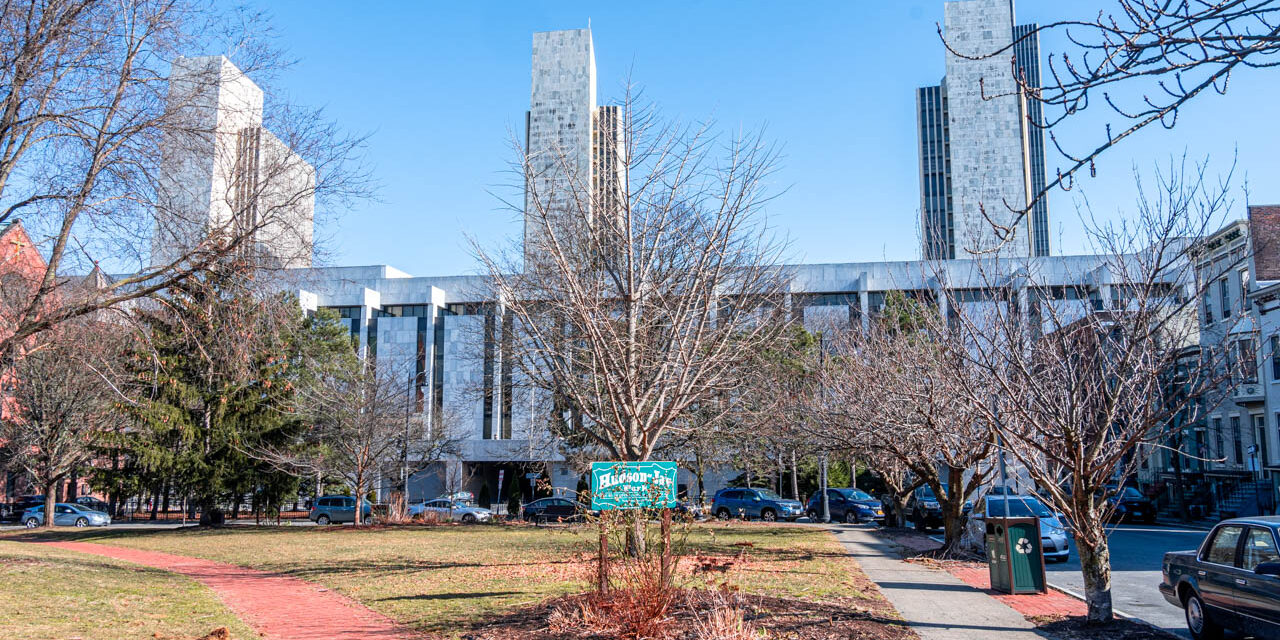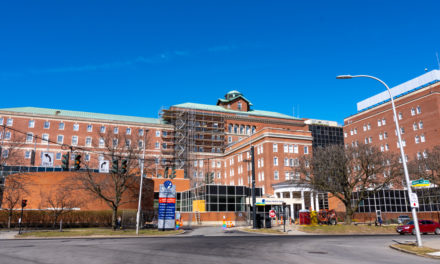Good morning. What a super day! Super Tuesday, to be exact.
For those who aren’t remotely interested in politics, this is just another ordinary day. You might want to go have another cup of coffee or check out TikTok or something, because this post is definitely not for you.
For those of us who are political junkies (active or recovering), today is something just short of the Super Bowl…maybe a big playoff game? It more or less determines which two candidates will be going on to complete in the biggest game of all – Election Day, Tuesday, Nov. 5, 2024.
The Super Tuesday tradition dates back decades. It will see the most states voting simultaneously and the most delegates up for grabs in the nominating calendar – more than one-third of the total for each party – all in a single day. It should be noted that the specific states participating in this tradition have varied because every state independently determines the timing of its own nominating contest – and its a very hot and politically fraught topic.
Instead of a single primary or caucus, 15 contests for Republicans and 16 contests for Democrats will take place in various states across the country today. More than a third of Republican convention delegates – 865 – are at stake today, while Democrats are vying for 1,420 delegates.
If you haven’t been keeping score at home, President Joe Biden is thus far undefeated in primary contests and caucuses this year – even in New Hampshire, where he was a write-in candidate (more on why that was can be found here).
The presumptive GOP nominee, former President Donald Trump has lost only one, which occurred this past weekend with former South Carolina Gov. Nikki Haley won the Washington, D.C. primary.
So far, Trump has 273 delegates, Haley has 43 delegates. A candidate needs 1,215 out of 2,429 delegates to win the Republican nomination. (North Dakota’s party-run caucus was held yesterday, with 29 delegates at stake, and Trump won them all, though turnout was very low, FWIW).
Florida Gov. Ron DeSantis, who has since dropped his White House bid, has nine delegates; Vivek Ramaswamy, who has also ended his bid, has three. Last week, Republican Ryan Binkley also ended his long-shot presidential campaign and endorsed Trump after failing to gain traction – or win any delegates – in any of the early nominating states.
Biden meanwhile, has 206 delegates. The Democratic candidate needs 1,968 delegates out of 3,934 to win their party’s nomination. There are no other Democratic candidates with delegates other than the current sitting president.
The primaries at stake this Super Tuesday include – Alabama, Alaska (for Republicans), Arkansas, California (a very delegate-rich state), Colorado; Maine, Massachusetts, Minnesota, North Carolina; Oklahoma, Tennessee, Texas; Utah, Vermont and Virginia. If you want a state-by-state breakdown of delegates, click here.
Super Tuesday is generally viewed as a strong predictor of who will win their respective party’s presidential nods due both to the diversity and number of voters who participate across the nation. It seems pretty much a sure thing, barring an act of God (let’s be honest, both of the leading candidates are up there in age), that we are heading toward a Biden-Trump re-match.
Oh, and in case you’re wonder about why presidential elections are held on a Tuesday…that has been the case since the mid-19th century, when Congress passed a law intended to make voting the the commander-in-chief as easy as possible for farmers and for those who are religiously observant. (And it has been that way every since, even though we are no longer an agrarian society and less than half of Americans identify as religious).
Also, as if Super Tuesday wasn’t enough political excitement for one week, it will be followed two days later (Thursday) by Biden’s State of the Union address – an opportunity for the president to speak directly to U.S. voters and to make the case that he has earned their support for another four years in the Oval Office.
We’re looking at rain today with temperatures back in the high 40s.
In the headlines…
States have no authority to remove Donald Trump from the 2024 presidential ballot, the Supreme Court ruled unanimously yesterday, short-circuiting efforts by his detractors to declare him disqualified over his role in the Jan. 6, 2021, attack on the Capitol.
The justices ruled a day before the Super Tuesday primaries that states cannot invoke a post-Civil War constitutional provision to keep presidential candidates from appearing on ballots. That power resides with Congress, the court wrote in an unsigned opinion.
The Supreme Court has on its plate, or could soon take up, a host of other legal issues related to Trump. And its decisions on these questions could have a significant impact on the many criminal and civil cases he is facing.
Trump won the North Dakota Republican presidential caucuses yesterday, adding to his string of victories heading into Super Tuesday. The former president finished first in voting conducted at 12 caucus sites, ahead of former U.N. Ambassador Nikki Haley.
Trump’s former finance chief Allen Weisselberg copped to new criminal charges in a lower Manhattan courtroom, admitting he told lies to the New York attorney general concerning what he knew about the actual size of Trump’s Fifth Ave. penthouse, and when.
Weisselberg, the former Trump Organization finance chief, has already spent time at the Rikers Island jail complex. The perjury plea will send him back.
A United Nations report found signs that sexual violence was committed in multiple locations during the Hamas-led Oct. 7 attack on Israel and said that some hostages being held in the Gaza Strip had also been subjected to rape and sexual torture.
From late January to early February, the United Nations deployed a team of experts to Israel and the West Bank led by Pramila Patten, the secretary-general’s special representative on sexual violence in conflict.
Congress is expected later this week to take up and approve a package of six spending bills to fund half the government through the fall, after months of bitter negotiations as Republicans pressed for cuts and conservative policies.
The $460 billion legislation would fund a slew of government agencies and programs, including the Environmental Protection Agency, the Justice Department and veterans affairs. It must pass to avert a partial government shutdown at the end of the week.
The release of the text of legislation over the weekend was designed to meet the House’s rule to give lawmakers at least 72 hours to study a bill before voting.
Gov. Kathy Hochul wants you to know that she’s always been tough on crime. It’s just that others have gotten in the way of her message.
Hochul hopes that $25 million dollars will help New York take on retail theft.
“We see a spike in a certain area of crimes. I’m able to bring in my best assets, the New York State police,” the governor said. “We zero in on it and it’s actually working. so, now our next challenge is retail theft.”
Hochul indicated that she will announce an increase in the number of law enforcement officers in the New York City subway system.
The governor, who has been trumpeting her administration’s efforts to combat crime across New York, convened another news conference yesterday to announced that gun seizures are soaring and that criminal activity in the Capital Region is declining.
Hochul provided a project timeline and additional updates on the construction of new racing facilities at Belmont Park, announcing that the modernization effort is expected to be complete by the third fiscal quarter of 2026.
New York state Assemblymember Helene Weinstein, the first woman to chair the influential Assembly Ways and Means Committee, has announced she will retire at the end of this legislative session.
Weinstein, the longest-serving incumbent in the state Legislature’s lower chamber, joins her state Senate counterpart, Neil Breslin, in planning to retire.
Brooklyn Councilman Kalman Yeger is seeking Weinstein’s seat, and he has her endorsement.
Complaints about Hyundai and Kia vehicle thefts, unreturned rental security deposits, internet fraud and package thefts were among the top complaints received by the state attorney general’s office last year.
New York legislators will consider a bill introduced by state Sen. Jack M. Martins, a Long Island Republican, declaring embryos outside a person not to be a human life, in hopes of protecting in vitro fertilization procedures from legal challenges.
The state Commission on Judicial Conduct released its annual report, highlighting it received nearly 3,000 complaints last year — an increase of 22 percent from the prior year and the highest on record.
A senior New York City official acknowledged that Rikers Island, one of the nation’s most notorious jails, would most likely not be closed by the legally mandated deadline of August 2027.
Adams’ administration announced significant progress toward eliminating its backlogs of cash and food assistance cases, ahead of a court-ordered deadline of March 31.
Adams is open to reversing budget cuts he enacted last year if positive local economic trends continue, his top fiscal adviser said yesterday, giving City Council members hope that some of the mayor’s most drastic service reductions can be undone.
The federal government earmarked more than $150 million in migrant crisis-related aid for New York City last year, but the Adams administration has secured just $49 million of that lump sum to date, according to City Hall’s budget chief.
Leaders of the New York City Council yesterday called for many of the spending cuts ordered by Adams since last year to be reversed — the latest episode in an ongoing debate among local elected officials over the city’s financial health.
The city is creating a $50 million fund that will serve as collateral for minority-owned businesses attempting to secure loans for work on affordable housing projects, the mayor announced.
Winnie Greco, the mayoral aide whose homes were raided by federal law enforcement last week, has been added to a list of City Hall staffers and advisors who have “substantial” influence over policy, according to newly filed documents.
Greco has traveled with Adams on multiple occasions and stood by his side at key citywide events — underscoring a close relationship dating back to his time as Brooklyn borough president.
Nearly four years after the coronavirus pandemic hit, New York City is back in many ways. But the recovery is incomplete and uneven.
More than 70% of residents who live near a central Brooklyn hospital oppose New York State’s plans to close the medical center and move some of its services across the street, according to a poll published yesterday by opponents of the closure plan.
Hundreds of people voiced their opinions on the final day to weigh in on one of the most sweeping — and contentious — transportation projects in New York City in decades: Congestion pricing.
Last year was the deadliest year for cyclists in New York City since 1999, according to new data from the city’s Department of Transportation.
As part of an efficiency move designed to speed service on the Northeast Corridor, half the seats on Amtrak’s Albany-NYC trains now face backwards.
Siena College will take over 16 Clarkson University programs, including its master of teaching degree, later this year.
The North Hoosick Fire Department said it is altering its rules surrounding its routine dances held for local children after a teenager in attendance became combative Friday night and pulled out a knife.
The New Jersey ice cream parlor where “The Sopranos” abruptly cut to black in 2007 put Tony Soprano’s booth on eBay, hoping to fetch $10,000. It sold yesterday evening for $82,600.
Photo credit: George Fazio.





